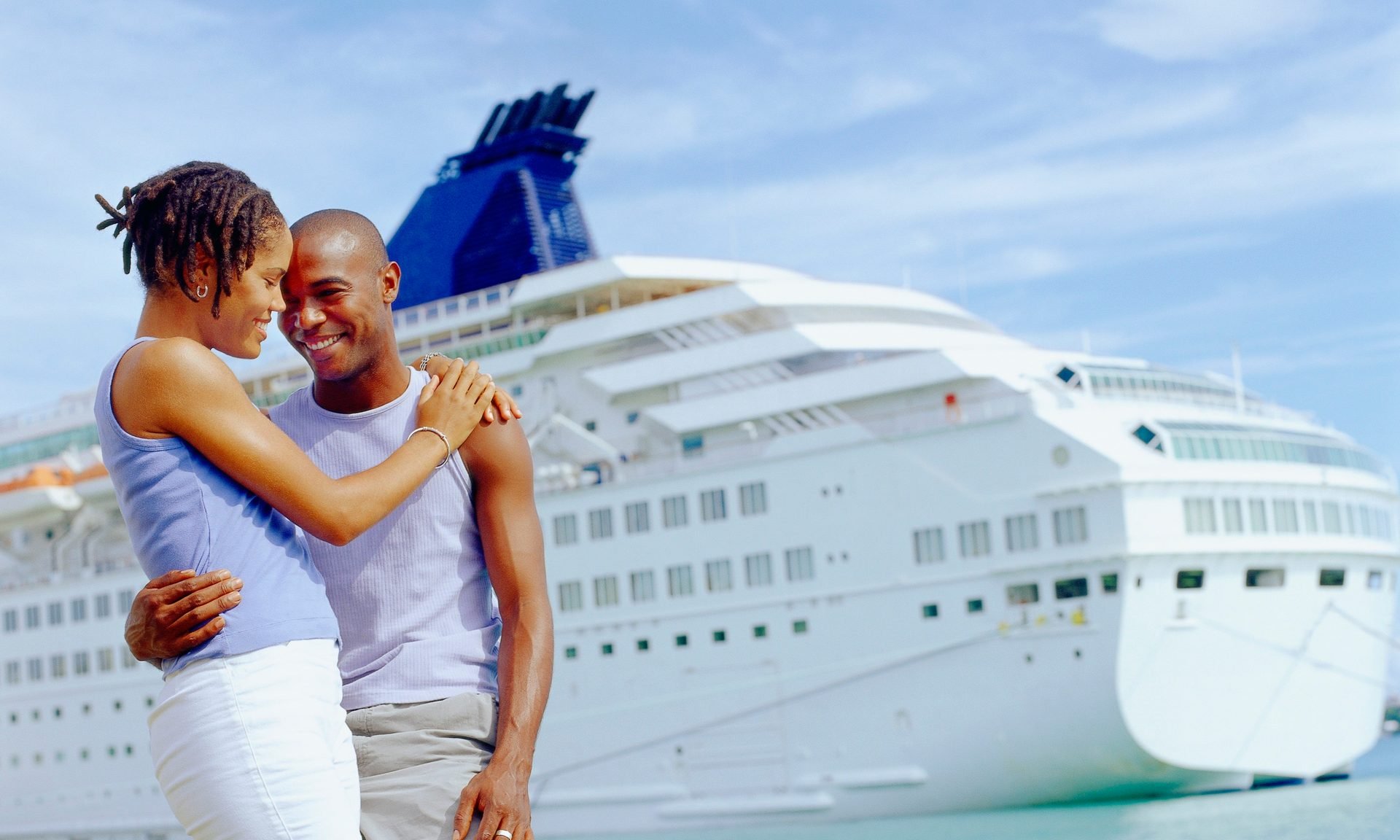Do You Need a Passport for a Bahamas Cruise?
Closed-loop cruises to the Bahamas — those that begin and end at the same U.S. port — don't require a passport.

Many or all of the products on this page are from partners who compensate us when you click to or take an action on their website, but this does not influence our evaluations or ratings. Our opinions are our own.
If you’ve never taken a cruise but are interested in traveling by ship, you may be wondering, “Do you need a passport to go on a cruise to the Bahamas?”
The answer to this question depends on a number of things. Let’s take a look at whether you need a passport for a Bahamas cruise, what other types of documentation you can use and how it differs when you’re flying versus cruising.
Cruising to the Bahamas
For those who are unfamiliar with cruising or the Caribbean, the Bahamas is a frequent destination for these behemoth ships. This nation of islands is conveniently located just off the coast of Florida, near Miami, which makes it an easy destination no matter the length of your cruise.
For this reason, you’ll see plenty of cruises taking off from Florida, stopping off in the Bahamas, then looping back and docking in the United States.
» Learn more: Tips for getting the best deal on your next cruise
Do you need a passport for a Bahamas cruise?
So, do you need a passport to cruise to the Bahamas? In most cases, U.S. citizens won’t need one. This is because the majority of cruises that you’ll find taking off from the U.S. and heading down to the Bahamas operate on a closed loop. Closed-loop cruises are those that take off from a U.S. port, visit at least one foreign port of call and then return to that same port.
There is an exception to the closed-loop rule: If your ship will be docking in a foreign country that requires a passport to enter, you will need to carry one on board. In order to find out if you’ll need a passport for any of your destination countries, check with your cruise company.
Even if you are on a closed-loop cruise, though, you will still need to bring identification documentation in lieu of a passport.
» Learn more: Is cruise travel insurance worth the cost?

By signing up, you will receive newsletters and promotional content and agree to our Terms of Use and acknowledge the data practices in our Privacy Policy. You may unsubscribe at any time.
What you need for a Bahamas cruise
If you’re sailing on a Bahamas cruise that’s closed loop and isn’t visiting any countries that require a passport, you don’t necessarily need to bring one with you — there are a few different identification options available to you.
According to the U.S. Customs and Border Protection, you’ll still need to provide some proof of U.S. citizenship. This can take the form of an Enhanced Driver’s License, a passport or a government-issued birth certificate. Additionally, you’ll need to bring a government-issued ID with your photo, name and date of birth.
It’s important to note that this documentation is only valid for reentry to the United States through a sea or land border crossing — it won’t work for air travel.
🤓 Nerdy Tip
If you’re bringing a birth certificate for proof of citizenship, it must be issued by the Vital Records Department of the state in which you were born. A hospital certificate of birth or baptismal papers don’t qualify. For non-U.S. citizens
If you’re not a U.S. citizen, do you need a passport to cruise to the Bahamas? Lawful permanent residents will be able to reenter the U.S. with a valid green card, but they will likely require a passport (and maybe even a visa) to visit any ports of call — including those which do not require passports of U.S. citizens.
Other non-U.S. citizens will require a passport or documentation specific to the status they’re seeking when entering the U.S., though there are some exceptions for those traveling to the U.S. on the Visa Waiver Program.
Be aware that these requirements only dictate reentry into the United States. You’ll want to research entry regulations for your destination country or countries before you leave to ensure you have proper documentation on hand.
Cruising versus flying
It’s important to understand the information provided above is limited to either land or sea border crossings. This means that if you’re heading to the Bahamas by air, you’re going to need to bring your passport to reenter the U.S.
If you have a passport, you may want to consider bringing it with you on your cruise even if it’s not required. Here’s why: Say you accidentally miss boarding the ship after your land excursion and need to take a flight back to Miami. In this case, your closed-loop cruise will have been interrupted and you’ll need your passport to get back into the United States.
🤓 Nerdy Tip
Don’t have a passport and still want to fly somewhere special? Consider heading to a United States territory, such as the U.S. Virgin Islands, American Samoa or Guam. When you need a passport for a cruise
Cruising further from the U.S.
There are occasions when you’ll need to bring your passport for a cruise. If you’re cruising outside of the U.S. — such as a jaunt through the Mediterranean — you’ll need to have your passport with you.
Certain repositioning cruises
You’ll also need a passport for cruises that begin and end in different ports, even if they’re both in the United States.
A good example of this is a repositioning cruise from Miami to San Diego. During different seasons, cruises will often sail one-way routes from one port to another in order to reposition their ships.
If you board in Miami, make a few ports of call, sail through the Panama Canal and end in San Diego, you’ll need to bring your passport.
In case of medical emergencies
In general, it is preferable to have a passport with you — especially in the event you need emergency medical care and have to stay in a foreign country, for example.
Purchasing cruise travel insurance can also mitigate the risks of travel emergencies.

By signing up, you will receive newsletters and promotional content and agree to our Terms of Use and acknowledge the data practices in our Privacy Policy. You may unsubscribe at any time.
Even better, you might not have to pay for coverage out-of-pocket. Book your trip with a credit card that includes travel insurance coverage as a perk and you'll have some peace of mind, even without additional coverage.
Other closed-loop cruises
The Bahamas isn’t the only place you can cruise without needing a passport. Plenty of locations are available to you as long as they maintain that closed-loop system. Other cruise destinations where you don’t need a passport may include:
- Alaska.
- Bermuda.
- Canada.
- Hawaii.
- Various ports in Mexico, such as Baja, Cozumel or Ensenada.
- The Caribbean.
The Caribbean includes over a dozen different countries and territories, so don’t think that you’re limited. Your options range from Barbados to Grand Cayman, Jamaica, Aruba and more.
» Learn more: The best cruise lines
If you want to cruise to the Bahamas
There are plenty of reasons to take a cruise, including great food, plentiful activities and lots of sunshine. If you’re looking for a Bahamas cruise, you’ll want to be aware of the documentation requirements for your trip.
As long as you're on a closed-loop cruise, you’ll be able to skip the passport in favor of other government-issued IDs.
However, depending on your cruise’s itinerary and the destinations you’ll visit, you may be subject to different regulations. Always be sure to double-check before departure to ensure you have everything you need.
How to maximize your rewards
You want a travel credit card that prioritizes what’s important to you. Here are some of the best travel credit cards of 2026:
- Flexibility, point transfers and a large bonus: Chase Sapphire Preferred® Card
- No annual fee: Wells Fargo Autograph® Card
- Flat-rate travel rewards: Capital One Venture Rewards Credit Card
- Bonus travel rewards and high-end perks: Chase Sapphire Reserve®
- Luxury perks: American Express Platinum Card®
- Business travelers: Ink Business Preferred® Credit Card
Article sources
NerdWallet writers are subject matter authorities who use primary,
trustworthy sources to inform their work, including peer-reviewed
studies, government websites, academic research and interviews with
industry experts. All content is fact-checked for accuracy, timeliness
and relevance. You can learn more about NerdWallet's high
standards for journalism by reading our
editorial guidelines.
Limited Time Only: Earn $1,000 Toward Travel!
Capital One Venture Rewards Credit Card 
Travel

For a limited time, the
Capital One Venture Rewards Credit Card is offering new cardholders an especially rich bonus: Enjoy $250 to use on Capital One Travel in your first cardholder year, plus earn 75,000 bonus miles once you spend $4,000 on purchases within the first 3 months from account opening - that’s equal to $1,000 in travel!
More like this
Related articles







